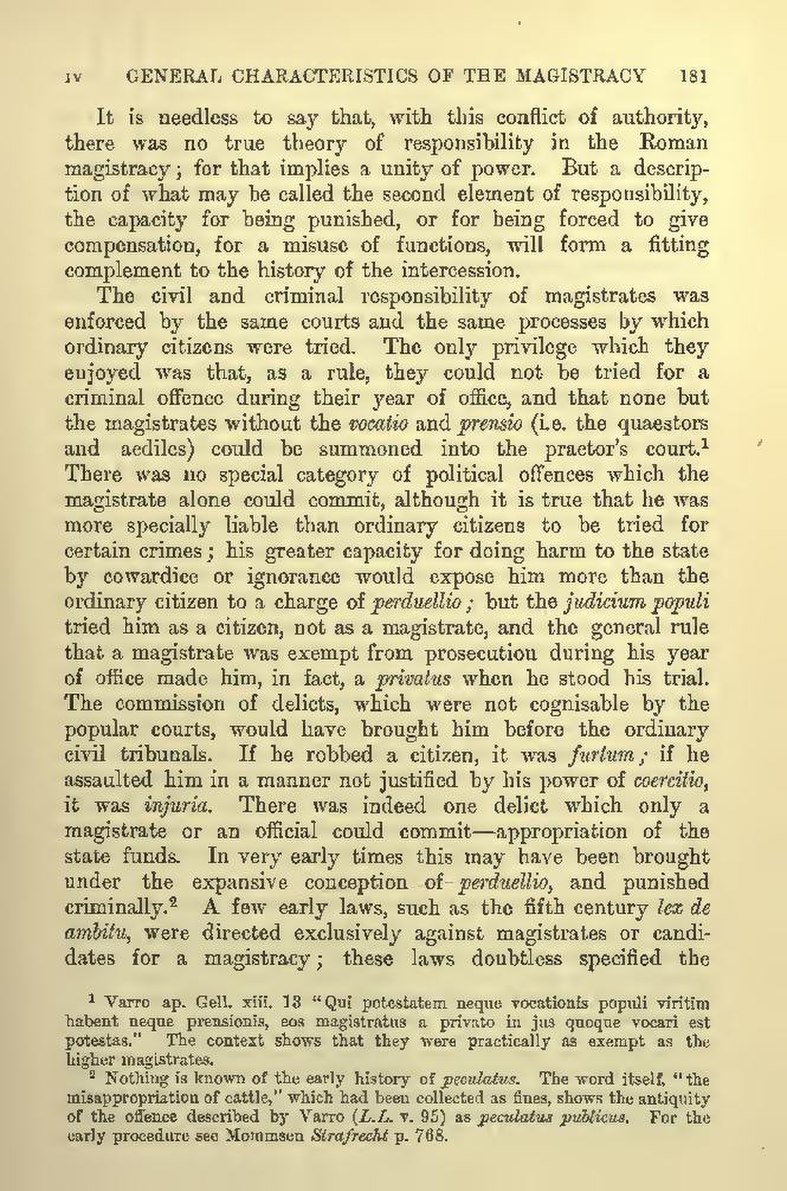It is needless to say that, with this conflict of authority, there was no true theory of responsibility in the Roman magistracy; for that implies a unity of power. But a description of what may be called the second element of responsibility, the capacity for being punished, or for being forced to give compensation, for a misuse of functions, will form a fitting complement to the history of the intercession.
The civil and criminal responsibility of magistrates was enforced by the same courts and the same processes by which ordinary citizens were tried. The only privilege which they enjoyed was that, as a rule, they could not be tried for a criminal offence during their year of office, and that none but the magistrates without the vocatio and prensio (i.e. the quaestors and aediles) could be summoned into the praetor's court.[1] There was no special category of political offences which the magistrate alone could commit, although it is true that he was more specially liable than ordinary citizens to be tried for certain crimes; his greater capacity for doing harm to the state by cowardice or ignorance would expose him more than the ordinary citizen to a charge of perduellio; but the judicium populi tried him as a citizen, not as a magistrate, and the general rule that a magistrate was exempt from prosecution during his year of office made him, in fact, a privatus when he stood his trial. The commission of delicts, which were not cognisable by the popular courts, would have brought him before the ordinary civil tribunals. If he robbed a citizen, it was furtum; if he assaulted him in a manner not justified by his power of coercitio, it was injuria. There was indeed one delict which only a magistrate or an official could commit—appropriation of the state funds. In very early times this may have been brought under the expansive conception of perduellio, and punished criminally.[2] A few early laws, such as the fifth century lex de ambitu, were directed exclusively against magistrates or candidates for a magistracy; these laws doubtless specified the
- ↑ Varro ap. Gell. xiii. 13 "Qui potestatem neque vocationis populi viritim habent neque prensionis, eos magistratus a privato in jus quoque vocari est potestas." The context shows that they were practically as exempt as the higher magistrates.
- ↑ Nothing is known of the early history of peculatus. The word itself, "the misappropriation of cattle," which had been collected as fines, shows the antiquity of the offence described by Varro (L.L. v. 95) as peculatus publicus. For the early procedure see Mommsen Strafrecht p. 768.
